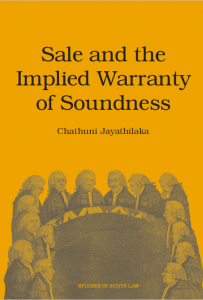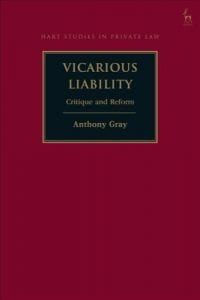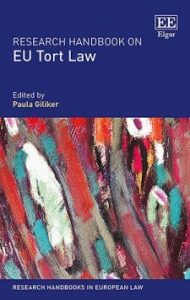by Prof Paula Giliker, University of Bristol and former President of the British Association of Comparative Law (BACL)
In this post, Prof Giliker evaluates survey findings taking stock of the current state of comparative law teaching in the UK; the text first appeared on the BACL blog on 30 October 2025: Comparative Law Teaching in the UK—Where are we in 2025? – British Association of Comparative Law

In July 2025, BACL members gathered with invited guests to celebrate the 75th anniversary of the British Association of Comparative Law, reflecting on comparative law scholarship, past, present and future (see image). I had the great honour to present and evaluate the results of the 2025 BACL survey of comparative law teaching in UK universities. The survey results are detailed below. A previous survey, published by Esin Örücü in 2002, had found no standard comparative law syllabus across universities, and that the majority of law academics in UK universities favoured national-centred teaching with reference to international or foreign law only as ‘appropriate’. While Örücü had observed a growing sense that EU membership and globalisation were challenging traditional parochialism, she concluded that comparative law teaching remained ‘an interesting but ornamental addition to a crammed curriculum’.
Has this Position Changed?
The 2025 BACL survey received responses from BACL representatives in 39 institutions in England (33), Wales (1), Scotland (4), and Northern Ireland (1). It covered a range of pre- and post-1992 universities. The survey asked four questions:
Q1: Do you teach comparative law and how do you interpret ‘comparative law’ in your institution?
Only 4 institutions (Aston, Lincoln, Middlesex, Oxford Brookes) indicated that comparative law was not actively taught in some form in their institution. The italicized words are, however, important in that this does not necessarily mean that the other universities teach distinct comparative law modules, but simply that comparative law is integrated in some way into UG and PG curricula.
Free text responses were sought to the question how to interpret ‘comparative law’. The majority (78%) opted for a conventional response:
- Comparing the similarities and differences of different legal systems: 78%
The survey, however, also found reflection on the difficulties of defining comparative law:
- It is used widely, with the term ‘comparative’ being used without necessarily having reference to any comparative methodology: 19%
- No single institutional interpretation and variation between staff: 28%
The emphasis was on micro-comparison with reference to private and public law. There was also a sense (19%) of certain modules being labelled comparative without ‘necessarily having any comparative methodology included’ (Oxford). Only a fifth of respondents mentioned methodology in their answer to this question (Answer expressly referred to methodology: 22%). Only four respondents (Essex, Kent, LSE, QUB) mentioned non-EU/non-US jurisdictions or transnational law in this answer.
Q2. Does comparative law feature exclusively within a research (e.g. dissertation or research projects) rather than a teaching context at your institution?
A vast majority here (81%) regarded comparative law as featuring both in terms of research and teaching. There was consensus, however, that there was a clear need for students wishing to undertake dissertations at UG or PG level to have some training in comparative research skills even where comparative law was not generally taught.
Although a number of institutions have dedicated comparative law UG modules, notably directed at those studying abroad, those without dedicated modules emphasised how comparative approaches are being used in both UG and PG teaching. This is consistent with universities seeking to attract international students; the Glasgow respondent noted that in his institution, module titles including the words ‘international’, ‘commercial’ or ‘comparative’ are viewed as likely to appeal to students. This seems to be particularly apparent at LLM level. The LSE respondent argued that the classroom experience is enhanced by ‘having students from a wide range of jurisdictions & backgrounds in the room. This facilitates class discussion … [T]his is usually the case, certainly on the LLM’.
Q3. If you teach comparative law, is it offered ONLY as a dedicated UG or PGT module at your institution?
- Yes: 10.5%
- It is offered more broadly in UG and PGT contexts: 71%
- Not offered at all: 18.5%
The low percentage of institutions that only (note the restriction) provide dedicated UG or PGT modules (10.5%) should not be seen as negative but that the majority of institutions (71%) consider comparative law teaching more broadly. In 1998, Peter Birks argued in his article, ‘The Academic and the Practitioner’ ((1998) 18 Legal Studies 397, 408) that:
… we are still leaving comparative … law in a ghetto, in the sense that some scholars do comparative research and then the same scholars run comparative law courses which are taken by some students … So far as it is possible for an observer to see what is going on, most of our teaching appears to assume that only English law counts.
The survey indicates that this “ghettoisation” is no longer so apparent in 2025. The majority of institutions surveyed have UG and PGT modules that have comparative elements in their syllabus. What is important is that comparative law teaching should no longer be seen in terms of whether the institution provides a stand-alone comparative law module, but to what extent teaching involves comparative elements. The latter may mean teaching UG and PG students comparative approaches to topics as diverse as private law, constitutional law, human rights or family law. For the 18.5% of respondents who do not have the opportunity to teach comparatively, given that the respondents were BACL representatives with a research interest in comparative law, this does demonstrate an untapped source of comparative law teaching, although many were able to supervise comparative research projects at these institutions.
Q4: If the answer to Q3 is yes or comparative law is offered more broadly in UG and PGT contexts, please tell us more about how comparative law is offered at your institution.
- Offered at UG level: 68%
- Offered at PG level: 62%
- Teaching includes methodology (including dissertation training): 53%
- Using materials beyond Western legal systems: 47%
This element of the survey sought qualitative information about how comparative law was taught. The answers revealed both traditional modes of teaching and more diverse attempts to include comparative law elements in the curriculum. What is clear is that the picture differs considerably from that of 2002. In 2015, UK university recruitment numbers were uncapped and, in 2025, we see a more diverse student population. In 2023/24 there were 732,285 overseas students studying at UK higher education providers or 23% of the total student population. 75,490 of these students were from the EU and 656,795 from outside the EU: International students in UK higher education – House of Commons Library. Mathias Siems ((2021) 41 Legal Studies 373, 374) argues that, despite Brexit, the UK also remains a popular destination for international academics attracted by its career opportunities, openness to overseas job applicants and the English-language medium of teaching. These academics will inevitably be drawn to include comparative elements in their teaching: ibid., 382. More negatively, however, some institutions have withdrawn comparative law modules due to the retirement of key staff, lack of student interest or curriculum change.
The survey identified dedicated UG modules, including in Scotland modules dedicated to the study of Mixed Legal Systems (Strathclyde), but also a great number of modules where comparative law formed part of the syllabus dedicated to a specific area of law, e.g. constitutional law, corporate law, family law, evidence, international economic law, legal history, or international and comparative human rights law. Certain respondents expressed concern as to what extent these latter modules integrate methodology into the teaching or rely simply on “foreign” examples to discuss the topic in question. York, for example, has the aim of integrating comparative law into other elements of the curriculum instead of offering a dedicated module. The York respondent (a highly respected comparative law theorist) expressed concern, however, that this approach left no place for the theories of comparative law.
More positively, respondents identified interest both at UG and PG level and, in particular, recognition of the utility of using comparative methodology lectures to assist with dissertation training. A number of respondents noted that a substantial proportion of PG students describe their research projects as comparative in one way or another. The Durham respondent remarked: ‘Comparative law features mostly in research, including among PGRs.’
A healthy 47% of respondents reported using sources beyond Western legal systems. This is boosted by the use of comparative law teaching to support UG degrees with a study abroad element beyond Europe, Scots interest in other mixed legal systems such as South Africa, and with a number of institutions now providing joint LLBs with Global or International law. This again evidences the internationalisation of both the curriculum and the student intake.
Conclusions
The survey presents a picture of comparative law teaching that is changing to respond to globalisation and internationalisation in UK universities. The diverse backgrounds of teaching staff also facilitate comparative approaches to law teaching, presenting UK universities with the opportunity to enrich their curricula. There have been blows, however. The loss of the Erasmus+ scheme due to Brexit means that there is no funding for EU staff teaching exchanges or incoming Erasmus students, with students in England, Wales and Scotland subject to the uncertainties of Turing funding. Equally, there is evidence that the introduction of the Solicitors Qualifying Examination (SQE) has led some universities to focus on making their students ‘SQE ready’ and to regard teaching comparative law as a luxury rather than as essential part of the law student’s learning experience.
Drawing on these findings, I would argue that there are three ways in which UK comparative law academics can promote comparative law teaching in UK universities. First, by embracing globalisation and internationalisation as an opportunity to promote comparative approaches to law in the syllabus. Second, by emphasising the utility of comparative law teaching in producing students ready for the global law market. Thirdly, by fighting for the integrity of comparative law teaching, not least in advocating that students need to be provided with a basic understanding of methodology, including the dangers of legal transplants, when studying comparative material or engaging in comparative research.
The Future?
What will a teaching survey undertaken in 2050 on the centenary of the BACL reveal? What is certain is that the efforts of comparative law academics present and future will play a part in shaping that response.





